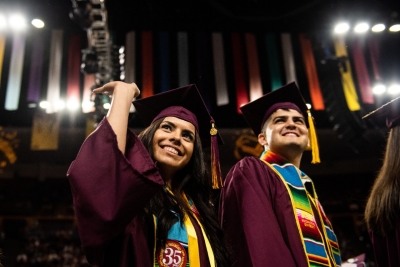WEBINAR: This webinar explores how to measure and communicate your organization's social impact with proven frameworks and strategies that matter to stakeholders.
Major investments result in systemic change on racial equity

Over the past few years, large-scale and multi-year philanthropic commitments have emerged as a trend in corporate giving.
With more pressure than ever to prove the impact of environmental, social, and governance (ESG) investments, corporate citizenship teams are challenged to track outcomes over many small gifts or grants. Larger consolidated investments offer the advantage of centralized accountability with community partners.
Commitments to racial justice in the long-term
Many of these significant investments address urgent societal issues, especially involving diversity, equity, and inclusion. Over course of the past fiscal year, companies reported the median amount given in multi-year commitments was $28 million, and the maximum was $1.25 billion. Typically, multi-year commitments carry certain conditions related to the completion of a specific project or the passing of a particular time period—or both. Generally, grants include detailed project plans, timelines, and budgets. Reporting requirements and periodic communication are often stipulated to promote accountability.
With these multi-year commitments, many philanthropic ventures now aim to address the root causes of injustice and systemic crises. Large, long-term grants encourage similarly long-term thinking about problems and encourage a diverse range of projects to effect system change. Furthermore, the nature of multi-year commitments allows a company to build deeper relationships with community partners. This contributes to firms developing a greater understanding of the issue being addressed.
In recent years, one of the most common issues addressed by corporate giving programs is diversity, equity, and inclusion. In this article, we will explore how Bank of America is addressing this issue at its roots with investments in the community over time.
Catalyzing racial equality: The role of the private sector
Bank of America is one of the world’s leading financial institutions, serving individual consumers, small and middle-market businesses, and large corporations with a full range of banking, investing, asset management, and other financial and risk management products and services. By driving what the company calls Responsible Growth, the bank delivers for teammates, clients, and shareholders and helps address society’s biggest challenges.
One example of this work in action is the bank’s commitment to advance racial equality and economic opportunity, a longstanding focus, which was accelerated following the killing of George Floyd in 2020. The bank deepened its efforts through a $1 billion commitment both in response to the tragic killings in communities across the country and the disproportionate impact of coronavirus on communities of color. Then, in March 2021, the bank expanded its commitment to $1.25 billion over five years to further support investments addressing racial justice, advocacy, and equality for people and communities of color. This work spans across the company, and includes philanthropy, sustainable finance through lending and investing, investments and deposits to community development financial institutions (CDFIs) and minority depository institutions (MDIs), hiring practices, development of financing solutions for small businesses, and more. These efforts focus on how to drive tangible progress, along with partners, in making systemic changes and reforms that address economic and racial disparities.
“A sense of true urgency has arisen across our nation, in view of the racial injustices we’ve seen in the communities where we work and live. We all need to do more,” said Brian Moynihan, president and CEO of Bank of America.
Already, more than $400 million has been funded directly or invested within the bank’s four areas of focus, including jobs, affordable housing, health, and small business. Examples of these investments include:
- $36 million to 21 minority depository institutions (MDIs) and community development financial institution (CDFI) banks that support minority-owned businesses. This is in addition to the bank’s approximately $100 million in deposits to MDIs and existing $2 billion CDFI portfolio
- $300 million to 100 equity funds to provide capital to diverse entrepreneurs and small business owners
- $25 million signature jobs initiative through which the bank is partnering with employers and 21 historically Black colleges and universities (HBCUs), Hispanic-serving institutions (HSIs), and com-munity colleges in support of expanding the job pipeline for people of color
- $10 million grant to fund the Center for Black Entrepreneurship (CBE), in partnership with Spelman and Morehouse colleges
- $25 million founding partnership in the Smithsonian’s new initiative on race, Our Shared Future: Reckoning with Our Racial Past
And the bank continues to drive racial equality and economic opportunity in many ways beyond its $1.25 billion commitment, including committing $60 million to increase access to capital and career opportunities for affordable housing developers of color and tripling its affordable homeownership initiative to $15 billion through 2025, aiming to help more than 60,000 individuals and families purchase homes.
“Our focus on racial equality and economic opportunity is just one example of how we are aligning our financing, philanthropy, and our own activities to help drive meaningful change and address society’s deep-rooted, institutional issues,” said Ebony Thomas, racial equality and economic opportunity initiatives executive at Bank of America. “Now, more than a year and a half later, we are continuing to take specific steps to address economic and racial disparities, and serve as a catalyst for a broader response across the private sector.”
Related Content
RESEARCH BRIEF - Researchers investigated how ESG activities help or hurt financial performance, using nine years of data from over 1,200 global companies.
RESEARCH BRIEF - Researchers analyzed 4 US energy exchange-traded funds (ETFs) over 15 years, including 2 dirty energy funds tracking fossil fuel companies and 2 clean energy funds tracking renewable energy companies.
RESEARCH BRIEF - Researchers conducted a survey, which measured perceptions of CSR and ethical leadership within the manufacturing and service industries.




